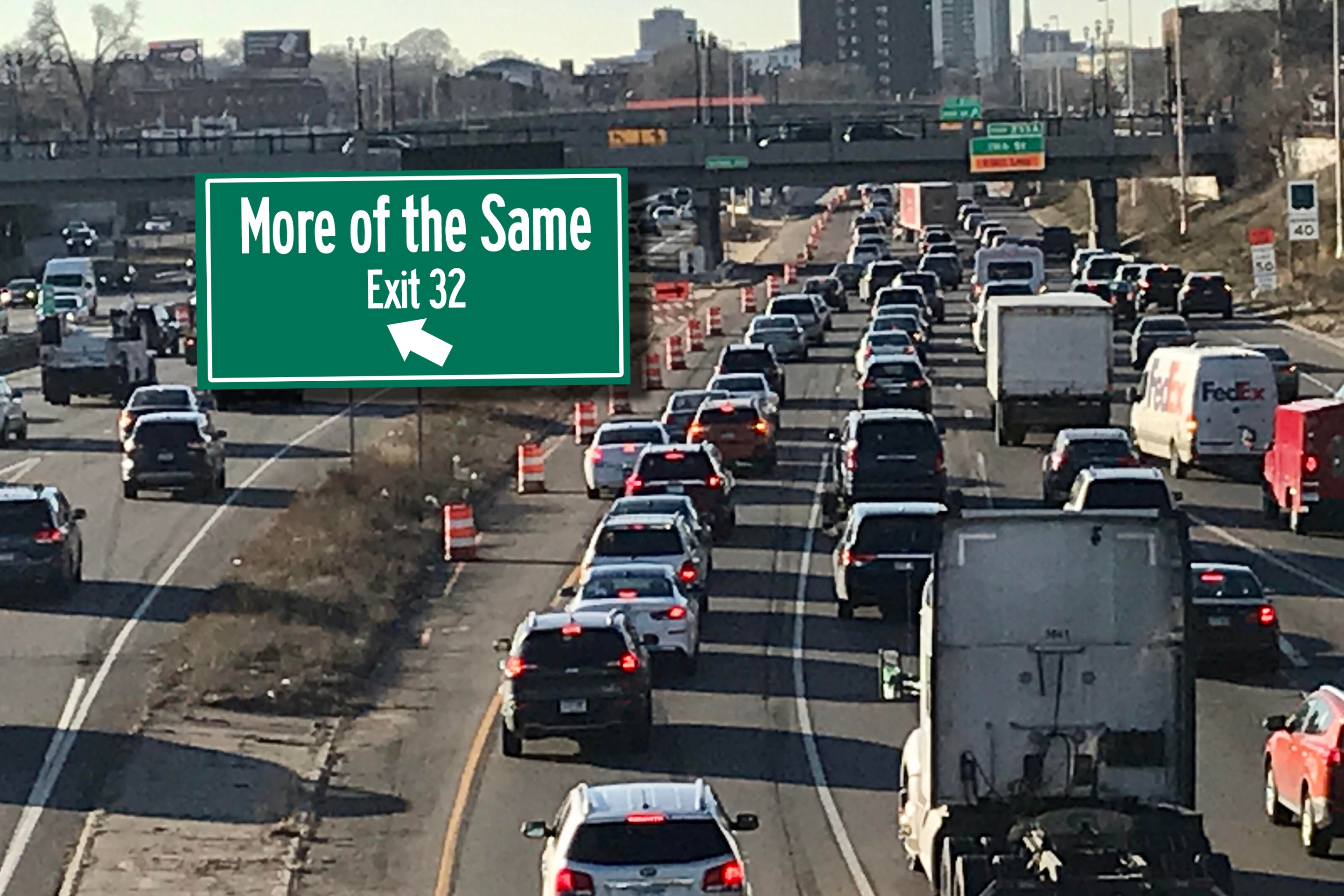 A Danish take on the sushi-bike connection. (Photo: Mikael Colville-Andersen via Flickr)
A Danish take on the sushi-bike connection. (Photo: Mikael Colville-Andersen via Flickr)How is a bicycle like a fish? Specifically, a piece of raw fish on sticky rice wrapped in seaweed?
Over at Copenhagenize Mikael Colville-Andersen is talking about the parallels between bicycle culture and sushi -- from a marketing standpoint.
It's part of a great conversation going on at Colville-Andersen's site about the difficulties of marketing bicycling as transport in a country like America.
In a guest post on Copenhagenize over the weekend, Brian Glover pointed out that in most of the United States, people who bike to get places rather than for sport are viewed as either losers or freaks.
How to change that? Glover, who lives in North Carolina, is skeptical that people in the American heartland will ever buy into cycling based on the sleek urban images popularized on the Copenhagenize and Copenhagen Cycle Chic sites. Here's the core of his argument:
I do think it’s possible to market cycling to the mainstream here in the U.S., and in developing cycling cultures around the world. But the way to make that happen is to tie cycling to high-status lifestyles in specific local cultures. A one-size-fits-all approach won’t work. Though it may trouble Mikael to admit it, “Denmark” is not a magic word for everyone. So, advocates and marketers need to look at what people really want; to be crude about it, they should market cycling in ways that, for the mainstream of a given local culture, just might get you laid.…
[E]ven [in North Carolina], and in much of the South, I can see possibilities. For instance, I think a "Charleston" approach would appeal to quite a lot of people -- blonde sorority girls on updated beach cruisers, tailgate parties with kegs and dogs (arriving by bike trailer), couples who look like George W. and Laura Bush (or even better, Cindy McCain) pulling up on expensive city bikes to big ol' Victorian houses in dense, Spanish-moss-draped neighborhoods right out of Southern Living. Ladies who lunch, pedaling stylishly in pastels to an azalea-shrouded church that isn’t an exurban megacomplex.
But Colville-Andersen, who has worked for years now to improve the image of cycling worldwide, sticks to his guns. The innovation, he insists, must come from the urban centers and infuse the culture from there. And that's where the sushi analogy comes in:
Sushi was "trendy" in L.A. and then New York, where it stranded for a while -- but didn't go away. The Theory of Diffusion of Innovations came into play. The Innovators took hold of sushi. It moved over to the Early Adopters and then the Early Majority. It's now been embraced by the Late Majority and, in the case of sushi, there are probably many Laggards who will never try it. Nevertheless, it's a success.
The bicycle is "hot" again, all over the world. With a bit of luck, the trend won't fade and we will continue to sell urban cycling positively, in order to allow the bicycle to tango its way into the lives of the Early Majority. We're well on our way.
What do you think? Will bicycling as transport one day be as ubiquitous as California roll?
More from around the network: The National Journal Transportation Expert Blog asks if transit authorities should get $2 billion in emergency operating aid. Human Transit has more on transit and Maslow's hierarchy of needs (a continuation of a conversation we took note of last week). And Cap'n Transit looks at the pernicious effects of parking requirements.





